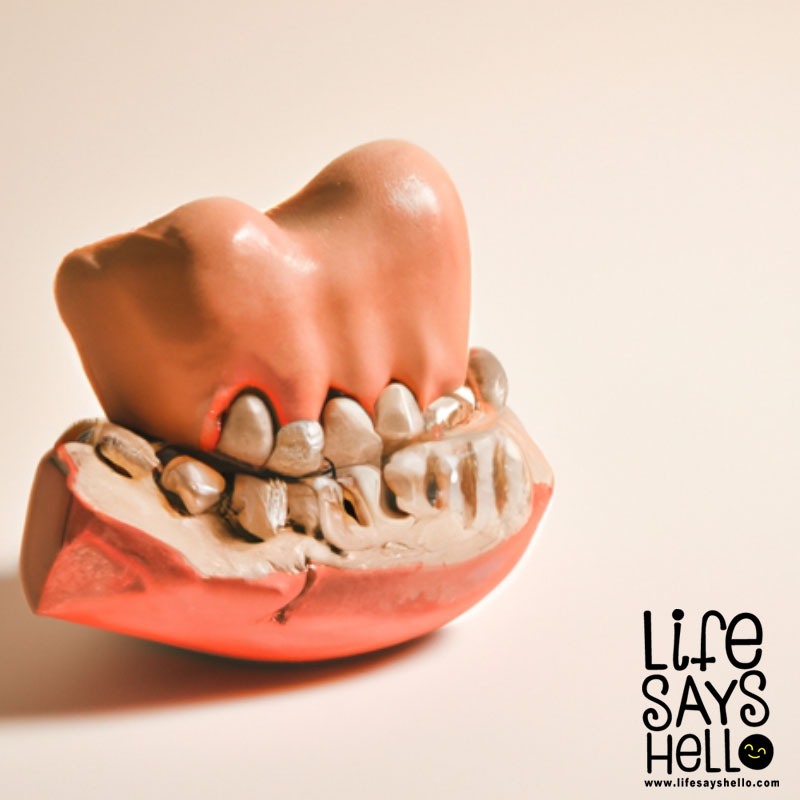The Dark Side of Ketosis: 6 Reasons Why the Keto Diet May Be Dangerous

The ketogenic diet has exploded in popularity over the last few years as a quick way to lose weight by putting your body into a state of ketosis. But is ketosis safe in the long run? This in-depth look at the keto diet examines the potential dangers of ketosis that you need to know.
The ketogenic (keto) diet is a very low-carbohydrate, high-fat diet that shares similarities with paleo, Atkins, and other low-carb diets. By limiting carbohydrates to no more than 50 grams per day, the body is forced to burn fat for fuel instead of glucose. This metabolic state is known as ketosis.
When carbs are severely restricted, the liver starts producing ketone bodies from fat to use as energy. Ketones are able to cross the blood-brain barrier and provide fuel for the brain in the absence of glucose. By inducing ketosis, the keto diet aims to promote weight and fat loss without hunger.
But is ketosis safe? While the keto diet may result in short-term weight loss and have therapeutic effects for some health conditions, there are also some potential dangers of ketosis to be aware of.
1. Nutrient Deficiencies
One of the biggest risks of the keto diet is that it can lead to nutrient deficiencies over time. By severely restricting all carbohydrates from grains, fruits, starchy vegetables, beans and legumes, you miss out on the vitamins, minerals, phytonutrients and fiber that these healthy foods provide.
Fruits, starchy veggies, and whole grains are rich sources of important micronutrients like magnesium, potassium, folate, vitamin C, and vitamin K. Without adequate intake of these nutrients, you may be at risk for deficiencies, poor blood sugar control, bone loss, impaired immunity, and other problems.
Leafy greens and non-starchy vegetables contain beneficial nutrients too, but you may struggle to eat enough volume to meet your needs, especially for things like magnesium and potassium. Tracking your nutrient intake closely is important on keto diets to avoid developing deficiencies. Taking a multivitamin may help fill in nutritional gaps that occur when eliminating major food groups.
2. Increased Risk of Heart Disease
The high amounts of saturated fat and cholesterol in the keto diet is concerning in terms of heart health. While the keto community claims saturated fats are not problematic, many experts disagree and warn about potential increased cardiovascular risks.
Saturated fats are found in high amounts in meat, butter, cheese, and coconut products commonly eaten on keto diets. Decades of research shows that diets high in saturated fat, which raises LDL cholesterol, are linked to an increased risk of atherosclerosis, heart attack, and stroke.
Recent meta-analyses and large cohort studies confirm that both higher intakes of saturated fat and higher blood LDL cholesterol levels correlate to a greater incidence of cardiovascular disease. Diets emphasizing vegetable fats like olive oil and avocado seem to be safer for heart health.
For those with a family history of heart disease or high cholesterol, embarking on the keto diet without medical supervision could be playing with fire. Work with a doctor to ensure the diet is truly safe for your individual health status.
3. Kidney Problems
People with impaired kidney function need to be very cautious with keto diets because they put additional strain on the kidneys.
When carbs are restricted, the kidneys excrete more water and sodium as ketones are produced. This may not be an issue for those with healthy kidneys, but those with kidney disease are at increased risk of dehydration and electrolyte imbalances.
Plus, high protein intake from meat, eggs, and dairy may further overwork the kidneys. Kidney stones are another possible risk of the keto diet, since acidic ketone bodies have to be excreted in urine. Make sure to stay well hydrated to dilute uric acid concentration.
Monitor kidney function with your doctor if attempting keto, especially if you already have chronic kidney disease. In some cases, the diet may need to be adjusted to prevent adverse effects.
4. Constipation
Constipation is another common complaint among keto dieters because the diet tends to be very low in fiber. By removing whole grains, fruits, beans, and many veggies, you miss out on the gut-healthy fiber they contain.
Some people need up to 25-30 grams of fiber per day for regular bowel movements. On keto, you might struggle to even get 15 grams per day. Too little fiber allows waste to linger in the intestines, causing uncomfortable constipation.
Make sure to include low-carb sources of fiber like avocados, chia seeds, flaxseeds, and green vegetables. If bowel regularity continues to be an issue, consider taking a fiber supplement like psyllium husk. Probiotics may also help get your gut back on track.
5. "Keto Flu" Transition Symptoms
When first starting keto, many people experience flu-like symptoms for 1-2 weeks as the body adapts to using ketones and fatty acids for fuel instead of carbs. Known as “keto flu,” this transition period can cause fatigue, nausea, dizziness, irritability, and mental fogginess.
These symptoms occur as your liver ramps up ketone production and your body becomes better at using ketones as energy. It takes time for your body to increase the enzymes needed to burn fat efficiently.
During the keto flu transition period, electrolyte imbalances are also common since ketosis promotes excretion of sodium, potassium and magnesium. Making sure to get enough of these minerals can help reduce symptoms.
Keto flu usually resolves within a few weeks as your metabolic flexibility improves. But some people find the transition too difficult and give up. Working with a doctor from the start can help manage any keto flu symptoms.
6. Unhealthy Relationship with Food
My biggest concern with the keto diet is that it promotes a restrictive approach to eating that can lead to disordered eating habits and poor body image. Labeling foods as “good” or “bad” creates unnecessary stress for many people.
Severely limiting entire food groups like fruits, grains and beans feels unnecessarily restrictive for most people. It makes healthy, balanced eating difficult to achieve. This promotes an “all or nothing” attitude around food groups that isn’t psychologically healthy long-term.
Diets that cut out foods people enjoy are difficult to sustain forever. Once carbs are reintroduced down the road, it’s easy to overeat those foods after depriving yourself. This can lead to weight regain, feelings of guilt, and other psychological impacts.
7. Decreased Bone Mineral Density
7. Decreased Bone Mineral Density
There is some evidence that keto diets may lead to decreased bone mineral density over time when calcium and vitamin D intake are inadequate.
Restricting dairy products due to their carb content makes it more challenging to get enough calcium on very low-carb diets. And without sufficient vitamin D from fortified dairy and other sources, calcium absorption suffers.
Over time, inadequate calcium and vitamin D intake can accelerate bone loss, leading to osteopenia or osteoporosis. This may be especially problematic for young women and older adults wanting to prevent bone fractures.
Make sure to eat calcium-rich low-carb foods like greens, salmon, sardines, nuts and seeds. Supplementing with calcium, vitamin D and vitamin K may also be beneficial for bone health if restricting dairy.
Getting adequate protein, phosphorus and magnesium is also important for maintaining strong bones on the ketogenic diet. Work with a nutritionist to make sure you meet calcium, vitamin D and other bone-related nutrient needs.
8. Increased Risk of Chronic Disease
Some evidence indicates that long-term keto diets that are based around animal foods can increase the risk of chronic conditions like heart disease, certain cancers, and all-cause mortality.
People following vegetarian or plant-based ketogenic diets seem to have lower chronic disease rates and longer lifespans. This suggests animal-based fat sources may be the problem, not ketosis itself.
One study on Seventh Day Adventists found vegetarian keto dieters had a significantly lower risk of developing diabetes, heart disease and cancer compared to those eating meat, dairy and eggs.
If you want to try keto, it may be wise to focus on plant-based fats like avocado, nuts, seeds, coconut, olive oil, and avoid processed meats. Seafood and lean poultry appear safer than high intakes of red meat and pork as well.
9. Not a Long-Term Solution
Perhaps the biggest drawback of ketogenic diets is that they are difficult to adhere to lifelong. With their extreme restrictions, keto diets often fail miserably when it comes to long-term compliance.
Maintaining very low carb intake for years is challenging. Eventually, most people end up reintroducing forbidden foods back into their diet, breaking ketosis. This may lead to weight regain, metabolic issues, and feelings of failure.
For many folks, low-carb or paleo diets seem to be effective for 6 months to 2 years at most. After this point, dietary fatigue sets in from restricting food groups long-term.
Cycling in and out of ketosis or taking a moderate carb approach is more realistic for many people. Work with a professional to find a maintenance diet you can sustain lifelong after losing weight.
Key Takeaways on the Dangers of Ketosis
Ketosis from very low-carb diets may help short term weight loss but comes with several health risks to be aware of. Monitor carefully with your doctor.
Potential nutrient deficiencies, increased heart disease risk, kidney problems, constipation, bone loss and disordered eating patterns are possible concerns with ketogenic diets.
Vegetarian or plant-based keto diets seem to be safer options than diets high in meat, eggs, and dairy if you want to try ketosis.
Keto diets are difficult to maintain lifelong. Cycling in and out of ketosis or taking a more moderate carb approach may be better for long-term health.
Conclusion: Weigh Pros and Cons of Ketosis Carefully
The ketogenic diet and ketosis have become incredibly popular for weight loss and health. But as with any fad diet, it’s important to look past the hype at potential drawbacks.
Ketosis may provide therapeutic effects for some conditions and promote fat loss. However, it’s crucial to weigh the pros and cons carefully and work with your doctor. Blood testing can help monitor for unwanted side effects.
For many otherwise healthy people, more balanced diets that don’t restrict entire food groups are easier to maintain and safer in the long run. There are many moderate carb and lower carb diets that provide similar benefits to keto without the risks.
Focus on finding a style of eating you can sustain for life, not just for a few months. Lifelong healthy eating habits will provide far more health benefits than short-term dieting.




Comments